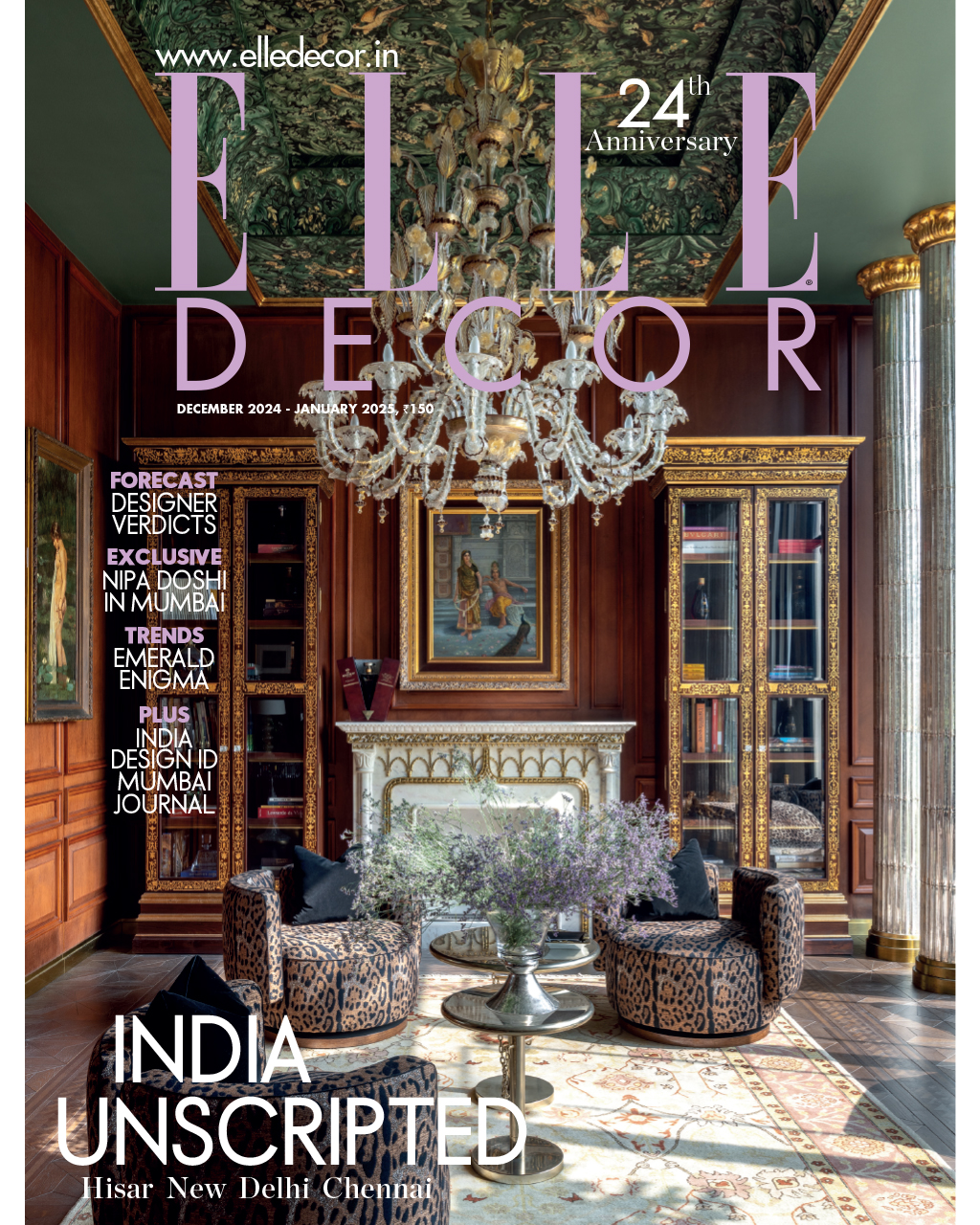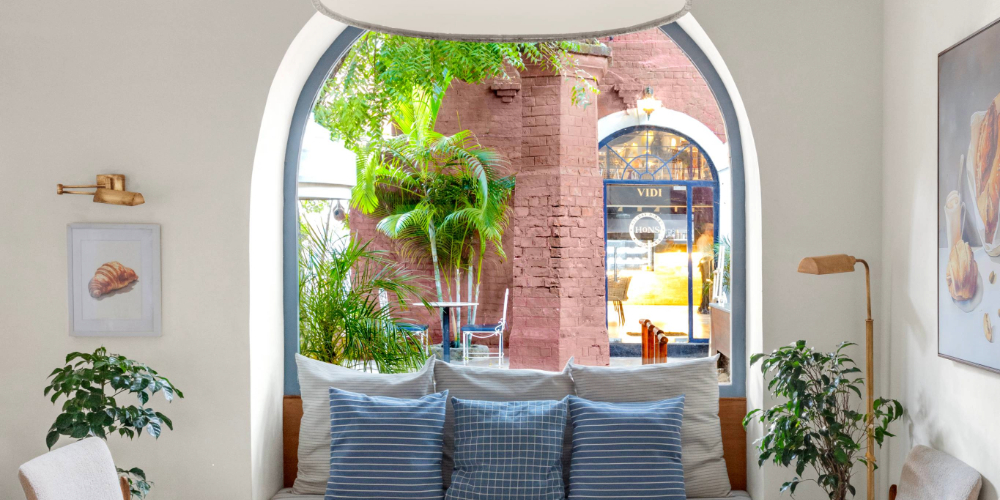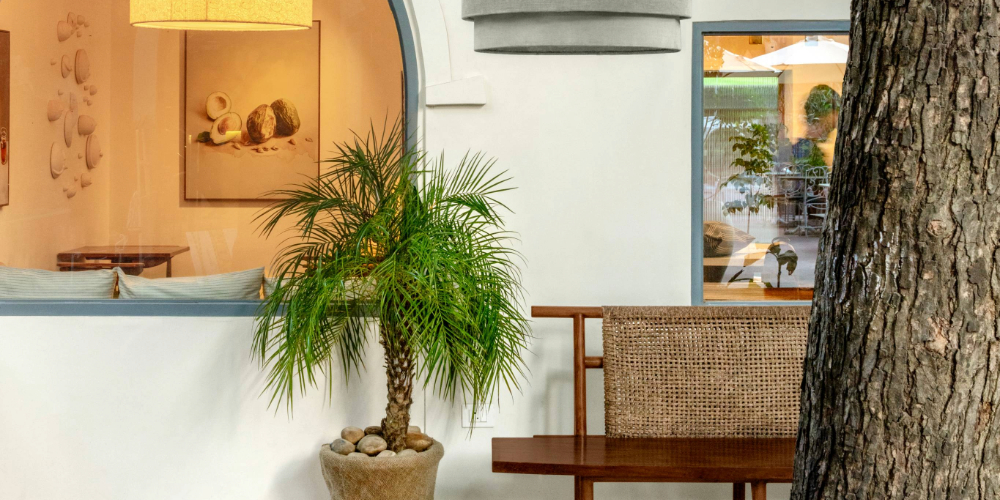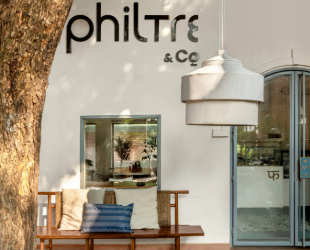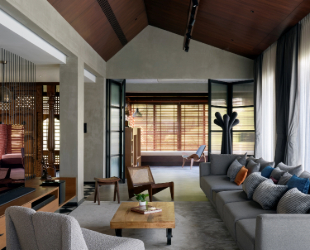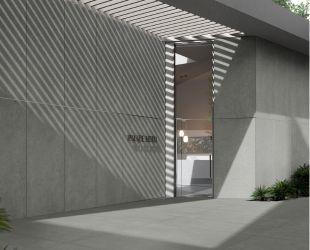Design
This cafe in Hazratganj melds Lucknowi heritage with modern minimalism by Atelier Varun Goyal
FEB 13, 2025 | By Pooja Prabbhan Srijith
A light-filled courtyard. Stone and brick pathways. A poised neem tree. And an all-white facade that is a fresh departure from the traditional palette of the city of Lucknow. This is Philtre & Co., a new-age bistro in the heart of Hazratganj punctuated with a sense of modern minimalism, yet reminding you of a heritage-esque appeal. Imagined by Atelier Varun Goyalalongside Malay Pandya and Paritosh Nigade, the cafe eschews conventionality through a design sensibility that brings the best of both worlds.
He explains, “The careful use of a soft, neutral colour palette further tied these elements of Lucknow’s unique identity together, allowing the historic and modern features to co-exist harmoniously.”
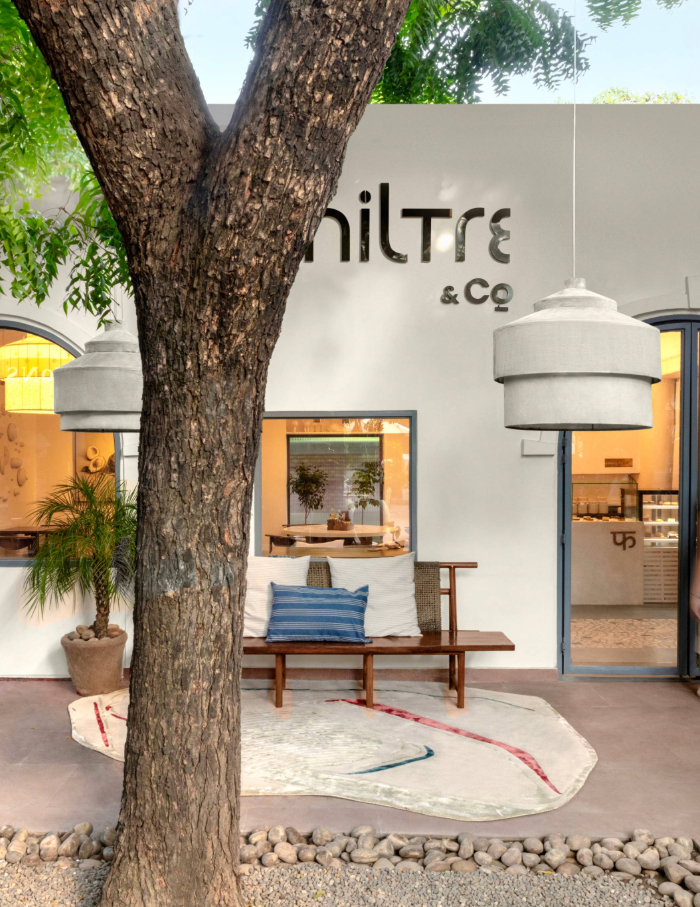
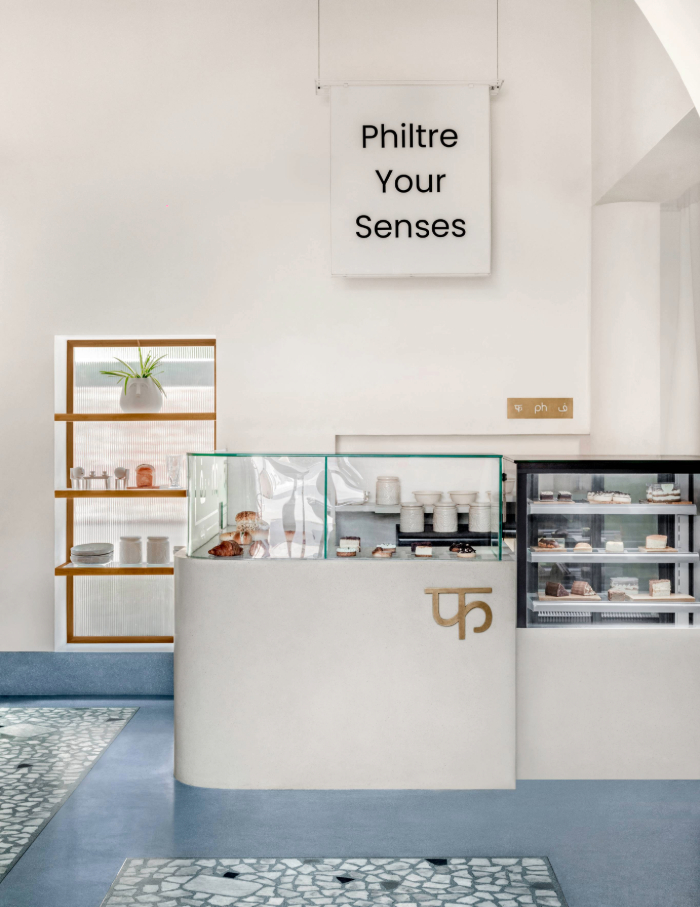
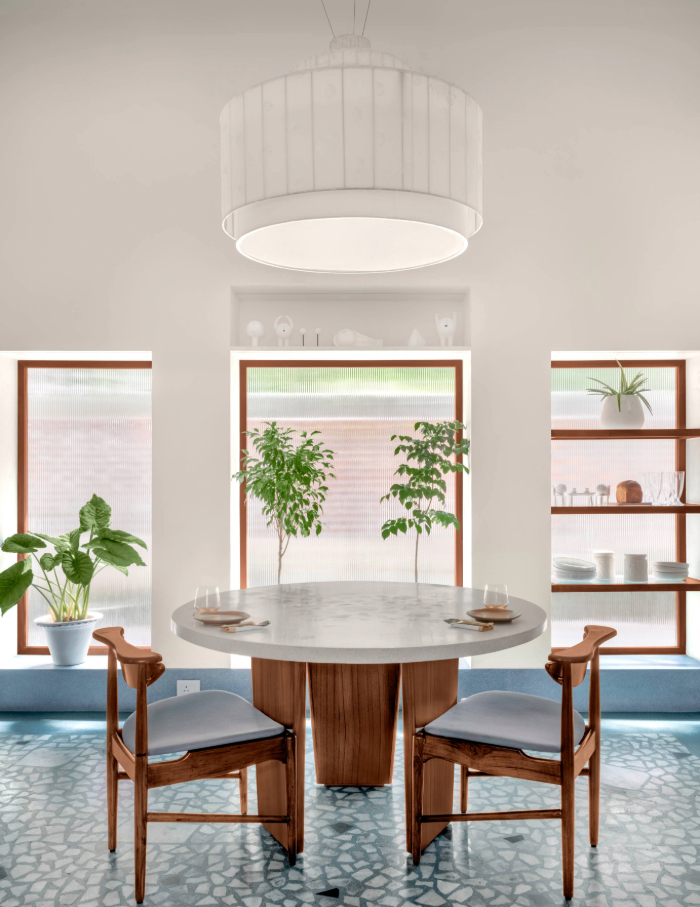
Beauty of contrasts
Look keenly — clean lines, neutral tones and the judicious use of natural light create a rested ambiance, while cultural accents like chikankari fabric partitions and terrazzo flooring ground the overall design in the city’s heritage vocabulary. The interiors spanning 2,000 sq ft bear a subdued and inviting mood, marked by terrazzo flooring, beige tones, Urdu lettering on the walls, Claymen sculptures and furniture inspired by mid-century modern design and Lucknow’s artisanal history.
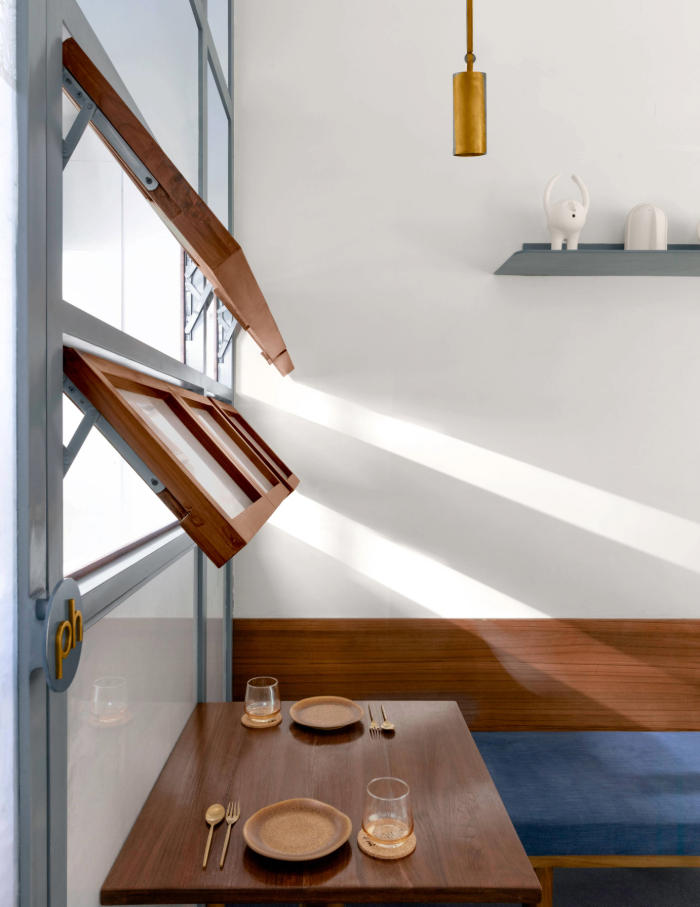
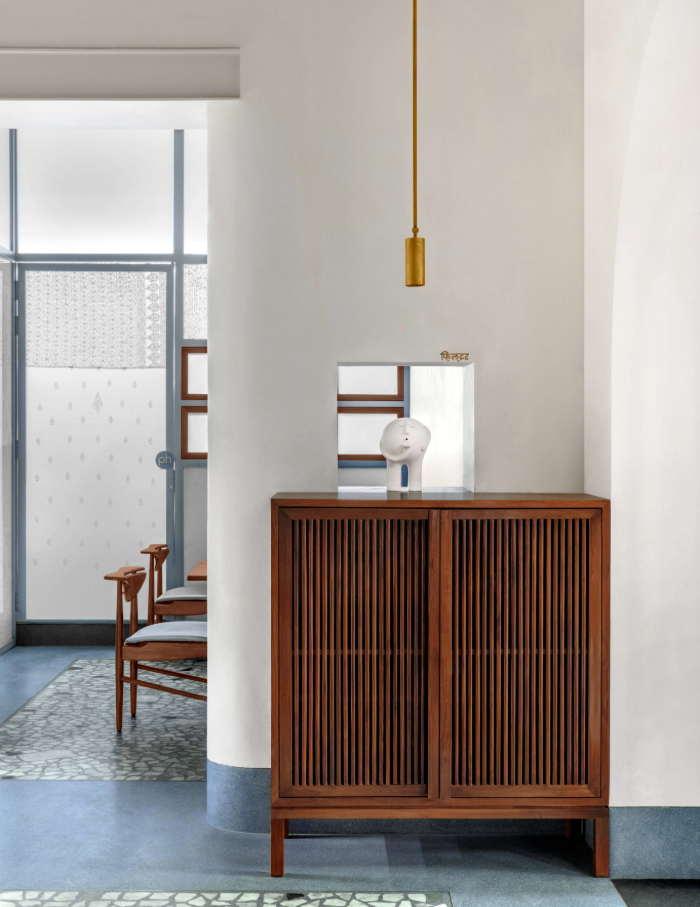
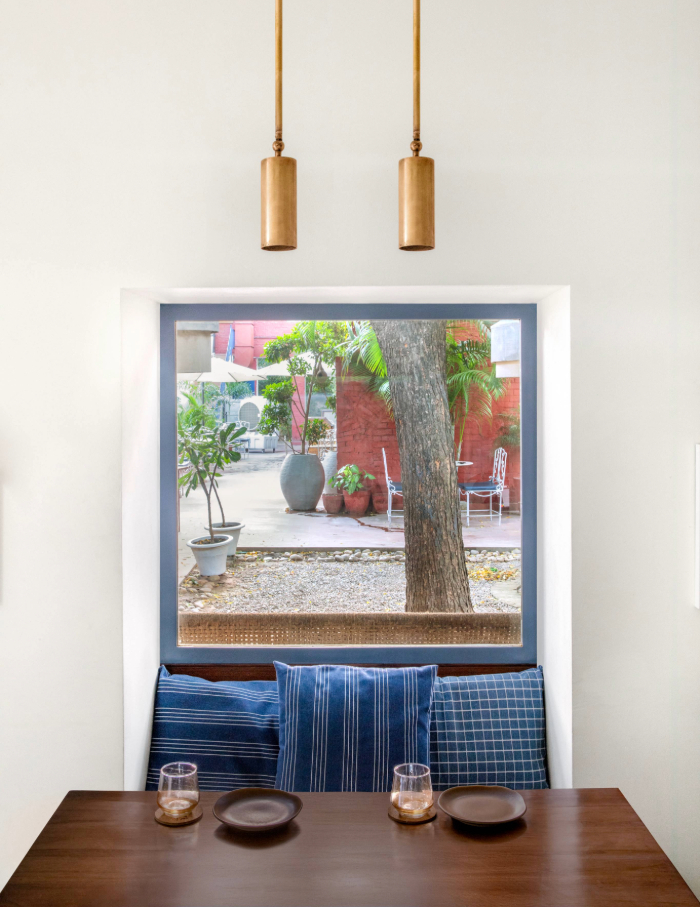
Besides the biophilic allure, the outdoor space replete with a live pizza-making station serves as an interactive spot where chefs interact with diners, enabling conversations to flow naturally.
A lesson in history
“Restoring a section of the historic Newal Kishore Press demanded careful planning and execution to preserve its original architectural charm while adapting it to function as a modern cafe,” avers Pankaj. The understanding led to making decisions like addressing the structural wear and tear, reopening bricked-in windows to allow natural light, and thoughtfully melding contemporary materials like terrazzo and glass to complement, rather than overshadow the building’s historic Indo-Saracenic and British architectural influences.
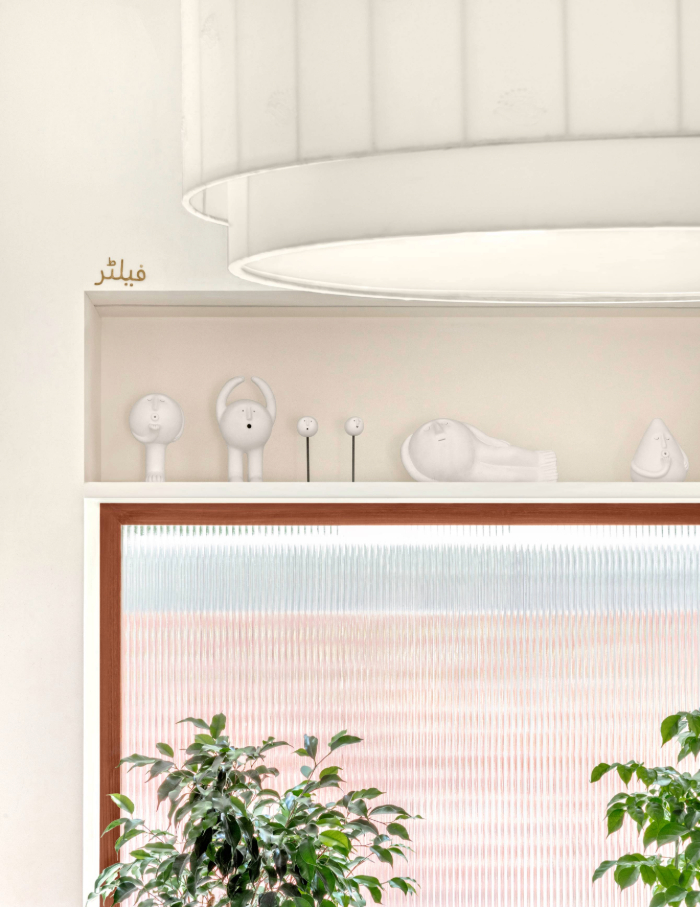
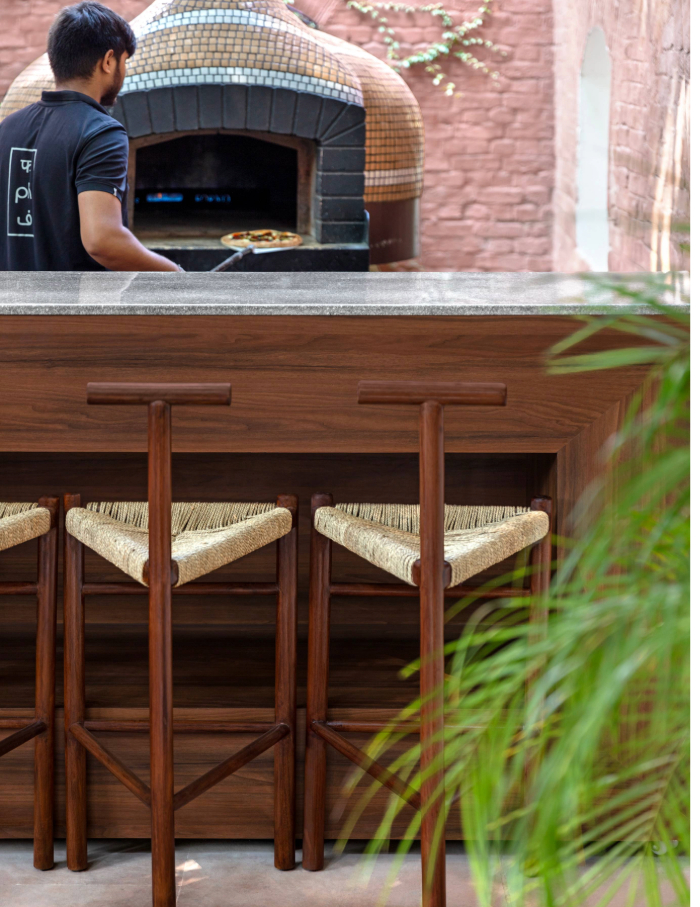
“Striking a harmony between heritage preservation and modern functionality was both a significant challenge and a deeply fulfilling aspect of the restoration,” cites the architect, visibly contented with finished product — a new-age café where patrons truly get the best of both worlds: Modern comfort, wrapped within the city’s artisanal and literary traditions.
Read more: Levana rooftop restaurant in Lucknow is a fusion of regal Mughal architecture and French influences

